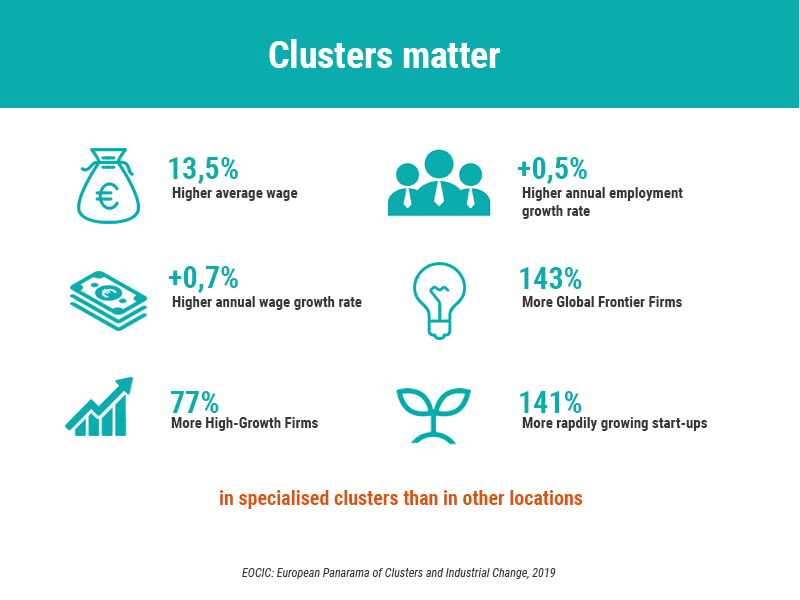#3 Why clusters are important?
The benefits of clustering for the development of innovation-based individual companies and for improving the competitiveness of a specific sector or region cannot be underestimated. Clusters help companies to take advantage of market opportunities that they could not achieve alone. Clusters can reduce the ‘pain barriers’ of cost and risk and adapt international rules and standards to the local context. Clusters take the company strategies, policies, the consumer culture to a higher level, thus making a contribution to creation of shared values.
Companies no longer can rely solely on their internal processes and strengths. To maintain pace with innovation, technological development and evolving consumer expectations, companies have to adjust quickly and develop appropriate responses at a higher speed. This is when combining efforts, making use of synergies, pooling resources increases competitive advantage while at the same time, reducing the risks involved in launching new products or entering new markets. Clusters enable improvement of firms’ capacity building by offering inter-company learning, experience sharing and mutual use of know-how. Finally, there are benefits in terms of business management. For instance, the use of joint sales channels augments the sales networks of each individual cluster member; personnel sharing (especially specialized functions such as R&D) reduce costs and time to market.
Clustering supports initiatives on creation of more innovative, more valuable products, creating new workplaces, new income, new industries, new professions, thus increasing the business capabilities. Groups of networked businesses in specific sectors jointly improve their business environment by providing support to each other.






